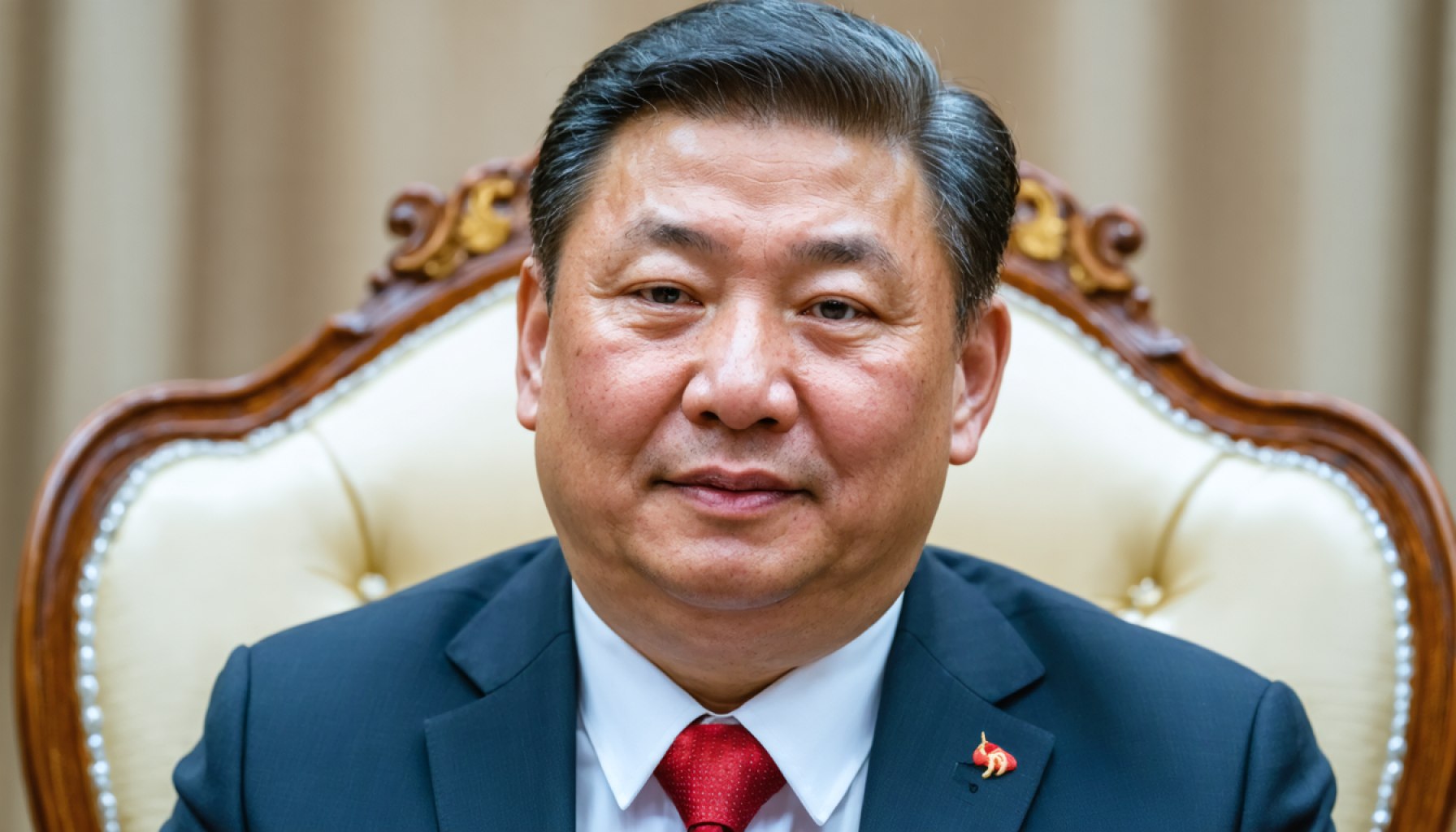- A high-ranking official from China’s 14th National People’s Congress Standing Committee is under investigation for serious misconduct, causing political unrest.
- The official previously served as governor of Jilin and Party Secretary of Hubei, roles significant for regional and agricultural policy development.
- The Central Commission for Discipline Inspection is actively investigating, highlighting China’s ongoing commitment to accountability and integrity.
- This investigation underscores the importance of ethical leadership and the government’s pursuit of honest governance.
- The situation serves as a powerful reminder that transparency and adherence to duties are crucial for those in positions of power.
An undercurrent of discord disrupts China’s political landscape as a high-ranking official falls under scrutiny. The news sends ripples through the corridors of power: a 14th National People’s Congress Standing Committee member faces a daunting investigation for serious misconduct.
Born in the summer of 1957, this official, who once served as governor of Jilin and later helmed Hubei as its Party Secretary, now finds his illustrious career clouded by allegations. These roles placed him at the vanguard of China’s political machinery, diligently steering regional development and maintaining the pulse of rural and agricultural policies.
The Central Commission for Discipline Inspection’s announcement reads like a roll of distant thunder, creating tremors of anticipation among observers. With authority and discretion, investigators sift through the layers of his past leadership, searching for a breach in the ethical fabric expected of those in power.
Such investigations are not just whispers in the halls of governance but powerful reminders of accountability. The Chinese government continues its rigorous pursuit of integrity, ensuring that no individual stands above the principles they swore to uphold.
As the inquiry unfolds, the broader message reverberates far beyond the confines of a single career: a determined stance against violations and a commitment to honest governance. In this unfolding drama, one learns anew that transparency and fidelity to one’s duties remain paramount, casting a spotlight on the nuances of leadership.
Political Turmoil in China: What This Means for Global Markets and Governance
How-To Steps & Life Hacks
For those navigating the complexities of leadership ethics or corporate governance, the current investigation into the high-ranking Chinese official offers some insightful steps:
1. Establish Clear Ethical Guidelines: Ensure that every member of your organization understands the ethical standards expected of them.
2. Implement Regular Audits: Conduct frequent audits to preemptively identify potential ethical breaches.
3. Foster an Open Culture: Encourage transparency and facilitate open discussions around accountability.
4. Provide Ethics Training: Offer regular training sessions to keep ethical considerations at the forefront of everyone’s thinking.
Real-World Use Cases
– International Relations: China’s internal politics can have significant implications for international diplomacy, particularly in regions like Southeast Asia where China’s influence is considerable.
– Market Volatility: Political scandals can lead to uncertainty in Asian markets; investors should monitor political climates to anticipate market shifts.
Market Forecasts & Industry Trends
Political unpredictability in China can impact global supply chains. Companies relying on Chinese manufacturing should diversify their supplier base to mitigate risks.
Reviews & Comparisons
Analysts often compare China’s anti-corruption drive with similar measures in other countries:
– China’s Campaign: Centralized and wielded as a tool for political consolidation.
– European Models: Emphasize transparent legal frameworks and judicial independence.
Controversies & Limitations
Some critics argue that China’s anti-corruption initiatives can be selectively applied, often serving political motives rather than purely ethical ones.
Features, Specs & Pricing
From an oversight perspective, China employs a robust framework involving:
– Central Commission for Discipline Inspection (CCDI): Primary agency in charge of enforcing party discipline.
Security & Sustainability
The political landscape in China shapes its sustainability policies, with regional leaders often playing pivotal roles in implementing environmental initiatives.
Insights & Predictions
Experts predict that China’s commitment to anti-corruption is likely to persist, perhaps intensifying ahead of major transitions within the Communist Party framework.
Pros & Cons Overview
Pros:
– Strengthened governance and trust in institutions.
– Potential for political and economic reforms.
Cons:
– Risk of political purging under the guise of anti-corruption.
– Economic unpredictability as scandals can impact local and global markets.
Actionable Recommendations
– For Business Leaders: Stay informed about geopolitical developments in China to anticipate changes that might impact operations.
– For Investors: Diversify portfolios to hedge against potential turbulence in Asian markets following political unrest.
Conclusion
The upheaval in China’s political landscape underscores the delicate balance between governance and ethics. As the investigation unfolds, the implication for businesses and governments alike is clear: prioritize integrity, vigilance, and adaptability in an ever-changing geopolitical environment.
For more insights into international relations and business, visit BBC News and Reuters.
